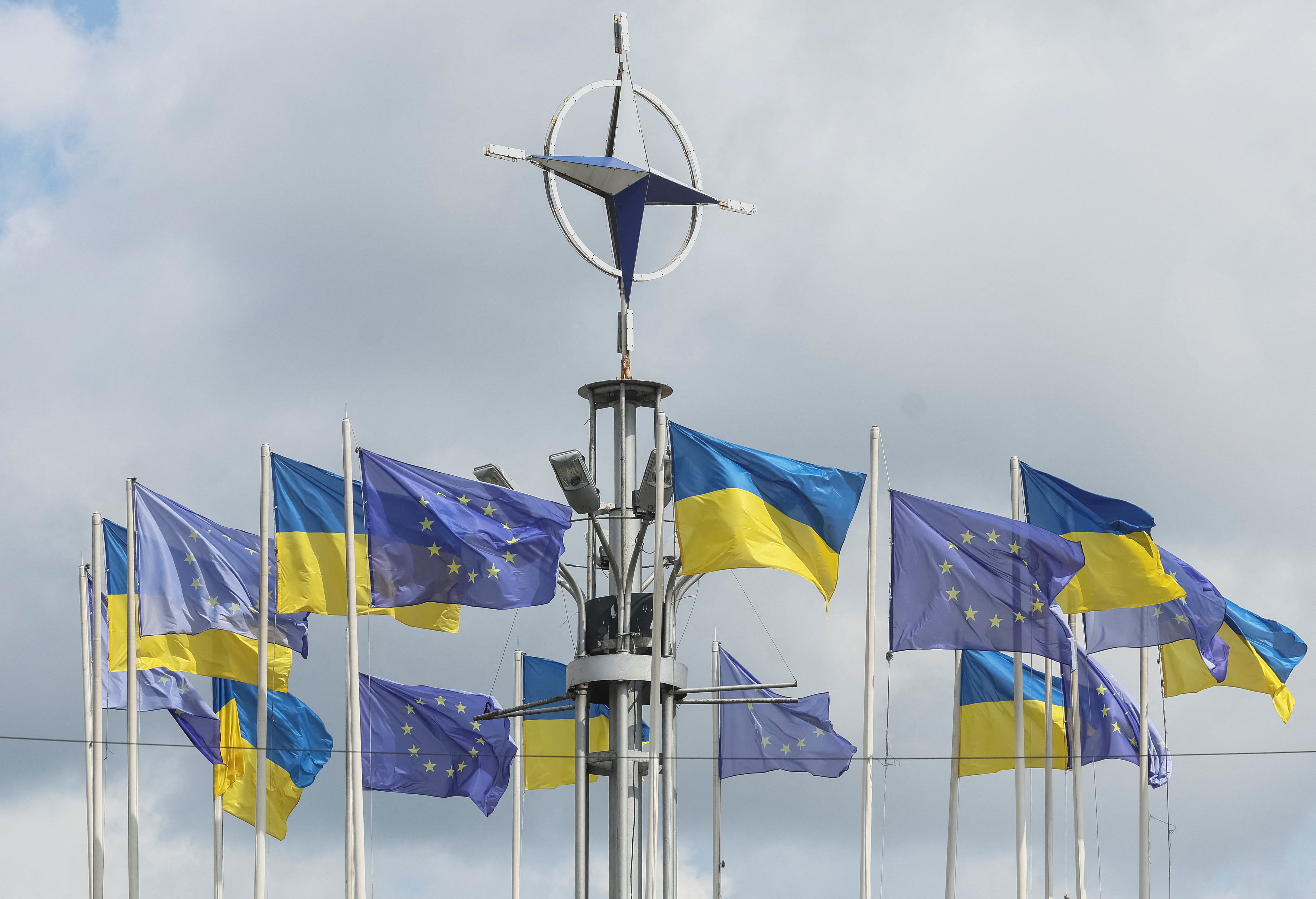Despite the early optimism they generated, the meetings in Alaska and Washington in mid-August, achieved nothing of substance, except that in their aftermath we may be nearer to an escalation of the war in Ukraine than before with more serious consequences for Europe in particular. Not by chance, the meetings happened at a point in time, when it is becoming brutally undeniable, that Ukraine’s collapse on the battlefield is gathering pace. So, Alaska recognised the reality on the ground, Putin had a chance to talk to the world of the root causes and Trump to extricate the United States from the war. The Europeans are keen to carry on as the coalition of the willing, but the playbook has changed. As Trump informed the gathering at the White House in the aftermath of the meeting in Anchorage, Alaska, America will supply the weapons for the war, the Europeans will buy them, pay for them with a 10% markup on top, according to the Treasury Secretary Scott Besent, and send them to Ukraine. The markup is for the cost of air support America will be providing presumably. So, the environment of spreading conflagrations will continue, in Ukraine and other places, and the lessons are as brutal as they are uncomfortable. War jeopardises the very existence of states, even as large as Ukraine, and it is understood that managing peace is preferred than fighting a war, even if supported by the big and powerful.
This lesson should resonate strongly. Cyprus’ diplomatic clashes with Turkey, of which we hear little about, and the forming of alliances in the misguided belief that these might tilt the balance somewhat and hand us a winning hand of sorts, might sound good on the campaign trail, for a while, but all in all, it is an extremely risky strategy, one that jeopardises the very existence of what we belatedly hold dear, the Republic. Wars, especially those lost, have a way of defining reality in ways that cannot be anticipated in advance. It applies as much to Ukraine as it does to Cyprus.
For reasons not well understood, the Europeans seem uninterested in ending the war in Ukraine. Instead, they seek to redirect it with ground troops, security guarantees, and American support. While the American narrative has shifted under Trump, the European perspective remains unchanged. For Trump, understanding root causes is essential. For Europeans, the narrative is fixed: Russia is an unprovoked aggressor who won’t stop at Ukraine but will attempt to reclaim former Soviet territories across Europe. Driven by this view, Europe demands Russia’s complete capitulation, an unconditional ceasefire, return of all conquered territories including Crimea, massive reparations, and Ukraine’s NATO membership.
For Russia, the conflict centres on root causes, security concerns, and the rights of ethnic Russians and Russian speakers in Ukraine. In a late August 2025 interview with Russian media after the summit, Foreign Minister Sergey Lavrov explained it: ‘President Trump and his team, especially after the meeting in Alaska, have taken a more in-depth approach to the settlement of this crisis, realizing that it is necessary to eliminate its root causes, something that we, President Putin, were saying all the time. And one of these root causes is the problem of Russia’s security that has to do with the fact that the pledges of not to allow NATO’s eastward enlargement given to us have been consistently and flagrantly violated over decades.’
Russia had presented these ideas for years, more recently and notably in December 2021 before invading Ukraine, with two proposed documents unusually released to the public: a draft agreement with NATO and a draft treaty with the United States as bases for renegotiating security architecture to satisfy Russian concerns. Russia recognized the need for both an agreement with NATO regarding European security and a separate agreement with the United States concerning American-controlled bases and missiles on European soil.
Europeans certainly have legitimate security concerns. However, if we accept the principle of ‘indivisible security’—that one nation’s security cannot increase at another’s expense—then NATO expansion into Ukraine was ‘the brightest of all red lines for the Russian elite.’ This assessment came from William Burns, then US Ambassador to Russia, in a February 2008 diplomatic cable to Secretary of State Condoleezza Rice before the Bucharest NATO summit where Ukraine’s and Georgia’s memberships were floated. The cable highlights a central factor in deteriorating US-Russia relations and the current conflict.
This reflects John Mearsheimer’s stark lesson: great power politics transcends international law and sovereign rights. The global system is inherently anarchic, and what matters is what great powers perceive as threats. This principle drove the Cuban Missile Crisis, when Soviet missiles in Cuba prompted an American naval blockade and nearly triggered nuclear war. According to Professor Mearsheimer, NATO expansion into Ukraine was similarly unacceptable to Russia.
The sad conclusion after all the shenanigans in Alaska and the White House, is that there cannot be a negotiated solution, in Ukraine, and we may be entering a new more dangerous phase. We are at an inflection point. Russia is winning the war and America is extricating itself from it, when the Europeans intend to keep a foothold in Ukraine under a banner of security guarantees – a plan unacceptable to Russia.
None of what is being discussed among the Europeans and within Nato will fly and only makes certain that the war will continue. This will most likely create new de facto realities on the ground, as wars typically do, and the risk is that more territory will be lost. Sending ‘peacekeeping’ troops to Ukraine would be interpreted by Russia as a declaration of war. Providing Ukraine with long-range weapons capable of striking deep into Russia, as the German Chancellor proposes, risks Russian retaliation, all while Germany prepares for potential conflict in 2029.
The dilemma of the war, whether we like it or not, is that, unless a settlement can be found soon, the future of Ukraine will be in doubt. Resolving Europe’s security architecture is central to achieving peace. The current environment is characterized by complexity, deep animosity, and complete distrust. The practical concern involves missiles targeting capital cities from both sides and the catastrophic potential of nuclear powers in conflict. Our conclusion is that regardless of how bitter the pill to swallow, Ukraine should sit down and negotiate with the Russians realistically and ignore entirely both the Americans and especially the Europeans. Greek Cypriots should reflect pensively, because the Ukraine disaster, and the Turkish invasion and occupation, rhyme, but not at the places we think.
*Ioannis Tirkides is the Economics Research Manager at Bank of Cyprus and President of the Cyprus Economic Society. Views expressed are personal. The article is republished from the Blog of the Cyprus Economic Society.






Click here to change your cookie preferences